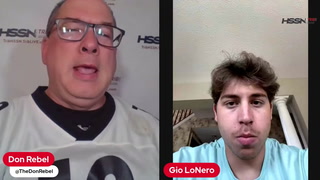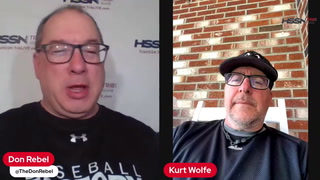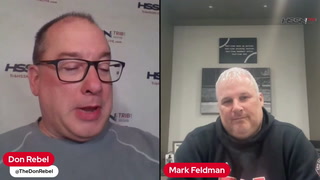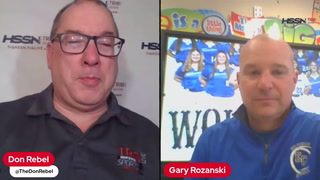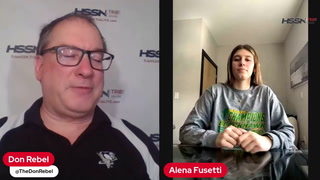State legislators will examine 1972 law at center of public vs. private debate
By:
Wednesday, September 5, 2018 | 10:18 PM
State legislation written four decades ago has become a bone of contention in the public vs. private school debate, so current lawmakers agreed Wednesday to research the law’s original intent.
The argument involves House Bill 2104 of 1972 that reads: “Private schools shall be permitted, if otherwise qualified, to be members of the Pennsylvania Interscholastic Athletic Association.”
To provide some clarity, the legislators will ask their lawyers to dig into the state archives.
“A lot of times you can go back and get a transcript of the (legislative) debate, whether it was in committee, on the house floor or the senate floor,” said state Rep. Gene DiGirolamo (R-Bucks), chairman of the State Athletic Oversight Committee. “A lot of times legislative intent is stated during the debate, so that would be important. I’m not sure if we can go back that far or not, but I’m going to find out.”
The oversight committee met Wednesday at Heinz Field to hear from public school administrators who want the PIAA to create separate playoffs for so-called boundary (public) and non-boundary (private, parochial and charter) schools. The hearing lasted more than two hours.
PIAA executive director Bob Lombardi, who also testified Wednesday, has said consistently that the 1972 legislation mandates that private schools be treated equally to public schools. Therefore, schools cannot be divided into separate playoff tournaments by type, he said. The public school administrators disagree with that interpretation.
The committee wasn’t prepared to address the issue with new legislation but agreed the old law needed clarity.
“I think everybody interprets it differently,” said Rep. Rob Matzie (D-Beaver), adding that high school education landscape has changed much since the legislation was written. “We didn’t have charter schools in 1972, so we need to look at that law and potentially open it up, if for no other reason than to add some definitions to determine what that intent is. I’m happy to see that the rest of the committee understands and agrees with that. We can look at it legally now.”
The public school administrators welcomed that decision. Laurel superintendent Leonard Rich, Millcreek superintendent Bill Hall, Harmony superintendent Stuart Albaugh and New Castle attorney Larry Kelly were the four who spoke Wednesday in favor of separate playoffs.
“Our voices were heard by people who can make a difference,” Rich said, “and they were sympathetic to what we had to say. I think this was a step forward in the movement toward reform.”
Rich, Hall and Albaugh helped organize the PIAA Playoff Equity Summit this summer that drew public school administrators to State College from across the state.
Along with DiGirolamo and Matzie, the oversight committee includes state Rep. Mike Reese (D-Westmoreland), and state Sens. Jay Costa (R-Allegheny) and Scott Martin (R-Lancaster).
Lincoln Park athletic director Mike Bariski also testified Wednesday on behalf of charter schools.
This hearing came three months after the committee heard boundary/non-boundary testimony in June from Lombardi, as well as Catholic and charter school representatives, who opposed separate playoffs. Lombardi testified again Wednesday along with PIAA president James Zack and director of legal affairs Michael Solomon.
The PIAA administrators used the hearing to list changes it has made in recent years to address competitive inequality — most focused on transfer rules. However, Costa criticized the PIAA for rushing new rules into place without the usual three-vote process. Lombardi defended the decision, insisting the transfer-rule changes needed to be implemented before fall sports started.
Among the other testimony, Kelly detailed how House Bill 2104 evolved through several edits in 1972 before becoming Act 219. He noted how the words “with public schools” were removed from an earlier version that said: “Private schools shall be permitted, if qualified, to participate in post season athletic contests with public schools.”
The public school administrators insisted that omission was key.
“In the final draft, it was taken out,” Rich said. “So that clearly denotes there was not support for that. So now they’re going to go dig, they’re going to go back in transcripts and look for intent.”
Chris Harlan is a Tribune-Review staff writer. You can contact Chris at charlan@tribweb.com or via Twitter @CHarlan_Trib.
More High School Other
• High school scores, summaries and schedules for April 22, 2024• High school sports schedules for April 22, 2024
• Penn-Trafford notebook: Warriors boys track looks to build off Wildcat Invitational win
• Penn Hills rugby program adds girls team
• High school scores, summaries and schedules for April 20, 2024




